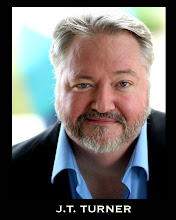Hello fellow players! ( Not to be confused with play-ahs). I have had this blog for some time now, and want to visit the inspiration for the title.
As you likely know in his play Hamlet, Shakespeare has the main character give advice to an acting troupe he has hired to perform a play before his Mother and her husband, his Uncle the new King. And he gives advice to the players that is still sound for all performers.
Speak the speech, I pray you, as I pronounced it to
you, trippingly on the tongue:
Simple advice, which many directors have said to actors over many years, "just say the lines!". Respect the words the writer wrote and get them into the air. One of the first things I do with actors working on Shakespeare i make them just say the words aloud to let them exsist in sound.
but if you mouth it,
as many of your players do, I had as lief the
town-crier spoke my lines.
Wait, William just said to just say the lines! True, but don't just say them. Yes, let the words carry thier own weight, but bring yourself to them. Do not just recite them, speak them as though they were your own, or your characters. I think the key here is to bring the right amount of acting to bear. Maybe the role needs you to be giant, and over the top, if that is what the play points to. But chances are the author and director would like you genuine.
Nor do not saw the air
too much with your hand, thus, but use all gently;
Don't flap like a fish. Not everything you say needs a gesture to emphasize it, let the gestures be natural and organic.
the whirlwind of passion, you must acquire and beget
a temperance that may give it smoothness
Oh the greatest challenge of all. Making this thing, this acting thing seem seamless. To be submerged into your character and let the glimpse of that characters life be as natural as your own is.
Be not too tame neither, but let your own discretion
be your tutor: suit the action to the word, the
word to the action
be your tutor: suit the action to the word, the
word to the action

Be active, even when relaxed or quiet. Will says be not too tame, but we may say be not too lame. Do not be so laid back and casual that you lose your audience. But do as the Bard suggests, suit the action to the word and word to the action. Again, as a writer, Shakespeare reminds us to respect the writing, embrace the words that you are building your show on. Are there times when a director, or you, might try to play against an emotion to highlight it? Of course! Delivering a horrible experience in a cold, controlled voice instead of tears and wails may be just what it needs to convery the horror as the author intended.
Good advice, and over 400 years old! And great for playing Shakespeare, but do not discount how well this works even with contemporary plays as well.
Need some coaching on a classic monologue? Contact me! jtactor@aol.com
Skype session available.
Skype session available.












